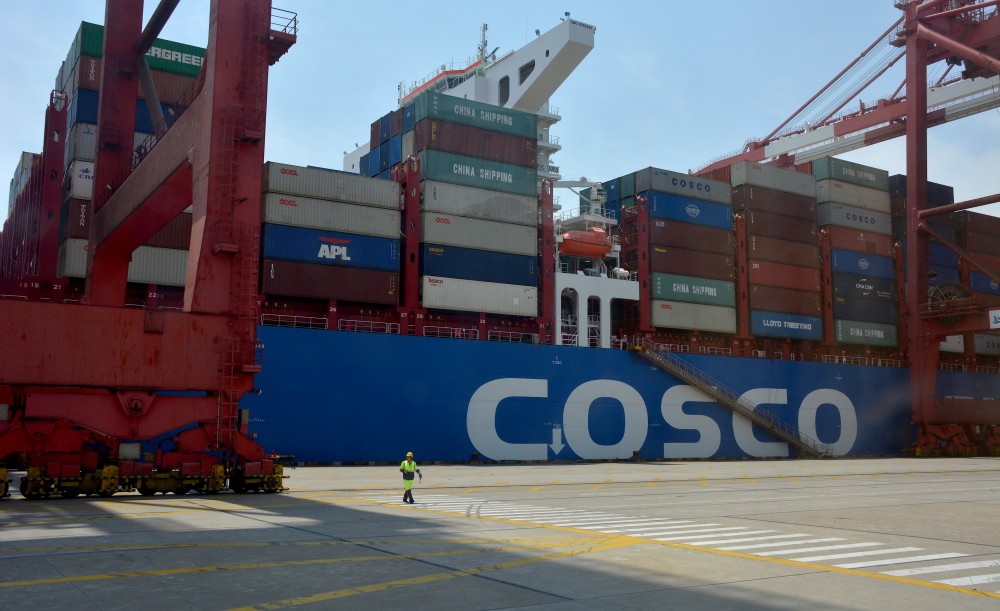China’s COSCO to stay course on Arctic shipping
Executive confirms continued focus on “smooth and quick” route north of Russia; suggests Northwest Passage service awaiting demand.

Chinese shipping company COSCO will continue its increase transit shipments on the Northern Sea Route, through the waters of the Russian Arctic.
“Our development strategy is to serve the Polar Silk Road and international trade between the North Atlantic region and the Far East,” Chen Feng, the head of COSCO’s marketing and sales division, said during a conference in Shanghai. “It is smooth and quick.”
Chen declined to specify the number of voyages COSCO was planning this year, stating there would only be “several of them,” both eastbound and westbound. Much depends on weather and ice conditions, as well as demand, he said in a speech delivered at the Arctic Circle China Forum.
[Russia’s Northern Sea Route sees record cargo volume in 2018]
Polar-shipping’s biggest advantage is the time savings it offers, according to Chen. “It is possible to save 10 days on a shipment between Asia and Europe when choosing the Northern Sea Route, and that means saving of costs.”
He added that the shorter shipping distance can help the company reduce fuel costs, which is beneficial for environment. Another benefit is that, unlike on routes through the Suez Canal and around Africa, piracy is not an issue on the Northern Sea Route.
Westbound shipments will be made mainly from China, but possibly also from South Korea and Japan. Chen added that COSCO was ready to offer services from the North Atlantic region, including the eastern coast of North America, to the Far East via the Northwest Passage.
COSCO has over the past five years been the leading company in transit shipments along the shipping route through Russian Arctic waters. The first two shipments were made in 2013, and in 2018 a total of eight voyages carrying 491,000 tons of cargo, were made. It has made a total of 22 trans-Arctic shipments.
[Canadian Inuit challenge U.S. stance on Northwest Passage]
Environmental aspects are of key importance for the company, Chen stressed. “We follow environmental protection when sailing and we are ready to offer sustainable shipping service in accordance with rules and regulations.”
The growth of state-owned COSCO’s polar-shipping activities comes amid intensified Chinese engagement in the region. Beijing has added what it calls a Polar Silk Road spur to its multi-trillion dollar Belt and Road infrastructure initiative, and Russian authorities earlier this month made clear that they see their Northern Sea Route as part of the picture.
Despite rapid ice-melting along the Russian Arctic coast, the waters in the area pose considerable navigational challenges.
COSCO, short for the China Ocean Shipping Company, is one of the world’s biggest shipping companies. While it as more than 130 ships in its fleet only a handful of them meet the requirements for sailing in polar waters.